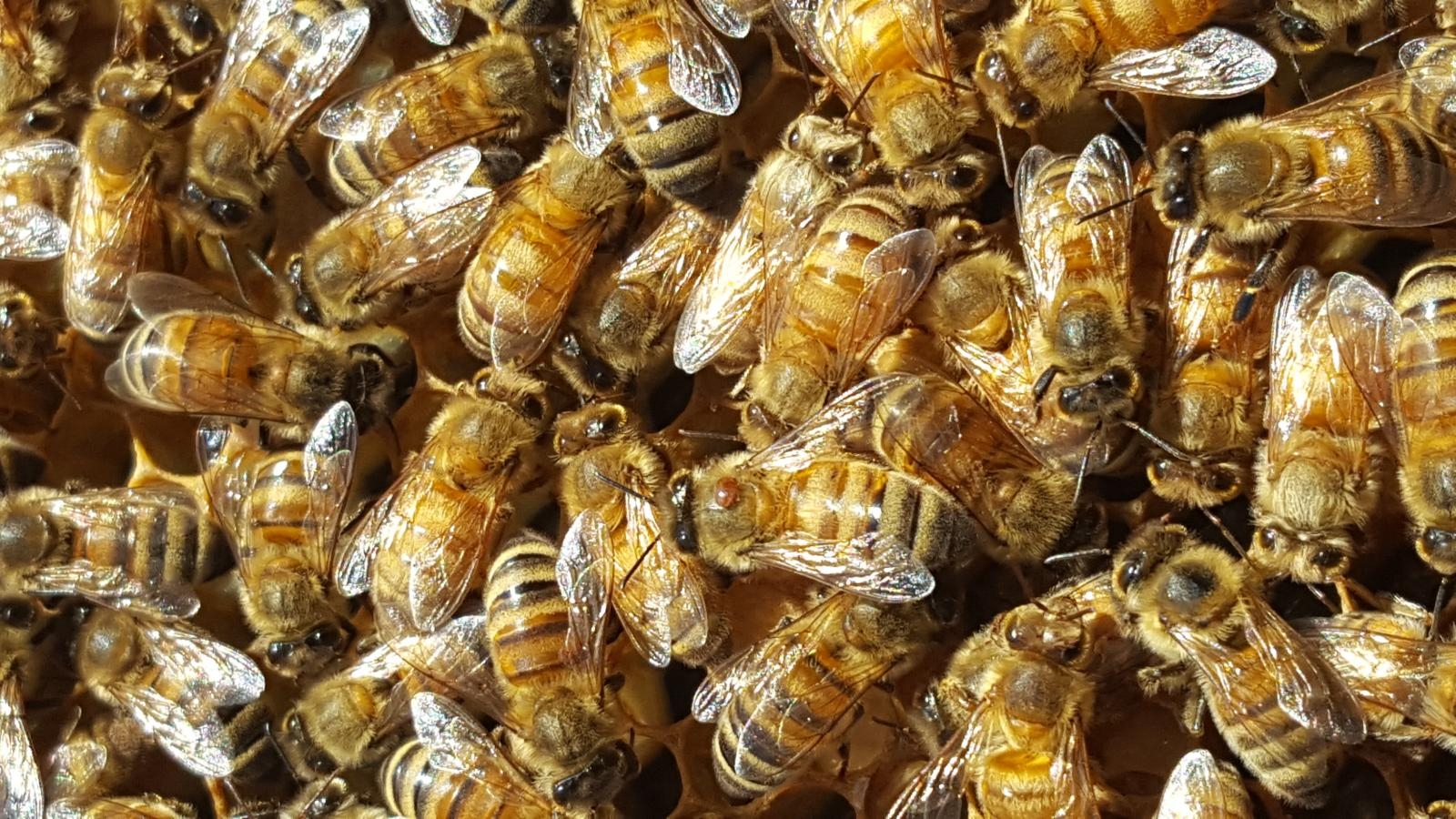The online Master of Science in Entomology program is designed for science professionals who are interested in broadening their skill sets and education in Entomology. The flexibility of this program allows students to create a program that is specific to an individuals needs and interests. Students will be able to apply the coursework from this program directly to their professions.
Through coursework, students will:
- Develop a theoretical and applied understanding of entomology
- Gain a knowledge base, enabling them to examine entomological problems and develop strategies to address these problems
- Enhance analysis and synthesis of divergent viewpoints
- Develop new professional skills and knowledge applicable to their career field
Students gain a well-rounded understanding of Entomology as a whole and are able to focus coursework in areas such as:
- Forensic and medical entomology
- Natural history
- Insects in education
- Insect pest management, toxicology and biological control
- Insect ecology, physiology and biochemistry
- Plant resistance
Options
Option A
- Minimum 30 cr, including 20-24 cr of regular coursework.
- Thesis required, equivalent to 6-10 cr. At least half of the required work, including thesis, must be in one major subject.
- Minor optional, at least 9 cr.
- 8 cr, in addition to the thesis, must be in graduate-only courses.
Option B
- Minimum 30 cr
- No thesis required.
- An optional minor of 9 credits (approved by the minor granting department)
- At least 15 hours of the 30 credits hours must be in graduate-only courses.
- Completion within 5 years
MEd is only available as Option B.
Courses
Core Courses
ENTO 801: Insect Physiology (3 credits) OR ENTO 820: Insect Toxicology (3 credits)
ENTO 801: Functions and other phenomena associated with the major organ systems of insects; the cuticle, nervous, circulatory, digestive, metabolism, nutrition, locomotion, reproduction, respiration, and growth and development.ENTO 820: Principles of toxicology, insecticide classification, mode of action, metabolism and consequences of insecticide use.
ENTO 888: MS Project (3 credits)
Application of graduate course work for the non-thesis MS degree program.ENTO 818: Insect Identification and Natural History (4 credits)
Prereq: Introductory course in entomology. Credit toward the degree may not be earned in both ENTO 800 and ENTO *818. Application of entomology to legal issues. Criminal investigations, insects of forensic importance, insect succession on carrion, and case studies.Elective Courses
ENTO 803: Management of Horticultural Crop Insects (3 credits)
Prereq: Introductory course in biology. Credit toward the degree cannot be earned in both ENTO 303 and ENTO 403/803. Biology, ecology and management of insect pests of horticultural crops such as vegetables, fruit trees, trees and shrubs, greenhouse crops, turf and ornamentals. Employs IPM strategies to maintain pests below damaging levels while minimizing the use of traditional insecticides.ENTO 805: Intro to Entomology (1 credit)
Introduction to insects (diversity, identification, morphology and physiology, ecology and behavior, and pest management). Beneficial, economic, and medical importance of insects, 1 cr. Offered in Fall & Spring. *Open only to students that have not taken an entomology course.ENTO 809: Insect Control by Host Plant Resistance (3 credits)
Explore resistance of crops to herbivorous arthropods. Investigate how insect behavior and physiology are affected by resistance, critically review current research on plant resistance genes, and the molecular, biochemical and physiological aspects of insect/microbe interactions with host plants. Prereqs: 12 hrs agricultural sciences and/or biological sciences including one course in entomology and one course in genetics.ENTO 810: Insects as Educational Tools for the Classroom (3 credits)
Prereq: Introductory entomology course or permission. Class taught via Blackboard. Offered fall semester. Insect diversity, insect structure and function, insect ecology and behavior, and the beneficial and detrimental roles of insects. Integrates the study of insects into the classroom to enhance science education.ENTO 812: Entomology and Pest Management (3 credits)
Prereq: Introductory course in entomology. Principles and practices of managing insect pests. Pest management theory, use of sampling, evaluation, tactics, types of insect pests, and current issues.ENTO 813: Biological Control of Pests (3 credits)
Prereq: 12 hrs BIOS and/or agricultural sciences. ENTO/PLPT 813 is offered spring semester of even-numbered calendar years.Principles and practices of using natural enemies and antagonists to manage the abundance of pests and reduce economic losses.ENTO 814: Forensic Entomology (3 credits)
Prereq: An introductory course in entomology. Application of entomology to legal issues. Criminal investigations, insects of forensic importance, insect succession on carrion, and case studies.ENTO 815: Medical Entomology (3 credits)
Prereqs: Introductory course in ENTO. Direct and indirect importance of insects in human medicine. Principles of arthropod-borne disease, medically important arthropod groups, and arthropod-transmitted diseases.ENTO 819: Insect Behavior (3 credits)
Prereq: An introductory course in entomology. Offered in the summer of even-numbered calendar years. Principles of animal behavior as applied to insects and terrestrial arthropods. Techniques in studying insect behavior.ENTO 820: Insect Toxicology (3 credits)
(3 cr I) Lec 3. Prereq: 12 hrs BIOS; 4 hrs organic chemistry.Offered fall semester of even-numbered calendar years.Principles of toxicology, insecticide classification, mode of action, metabolism and consequences of insecticide use.ENTO 825: Management of Agronomic Insects (3 credits)
Lec 3. Prereq: An introductory entomology course. Identification, biology, ecology and management of insect pests of agronomic crops such as corn, soybeans, sorghum, wheat, and alfalfa. Integrated Pest Management (IPM) strategies employed to maintain pests below damaging levels while minimizing the use of traditional insecticides.ENTO 826: Scientific Illustration (3 credits)
(3 cr II) Ind. Prereq: 12 hrs agricultural and/or biological sciences. Offered spring semester of even-numbered calendar years. Prepare scientifically accurate, high quality illustrations and graphics for the teaching, presentation, and publication of scientific information. Drawing techniques, drafting, copyright, and publication and presentation of scientific art work.ENTO 830: Introduction to the Development of Distance Education Courses (3 credits)
Introduction to practical aspects of developing and facilitating distance education courses. Create and facilitate interaction, assessments, course delivery, assignments, course etiquette and ADA compliance. Develop a distance course module grounded in distance education theory and instructional design principles.ENTO 837: IPM in Sensitive Environments (1 credit)
Concepts of Integrated Pest Management (IPM) and methods used to control insect pests in sensitive environments such as schools, day cares, hospitals, nursing homes, zoos, and prisons, 1 cr, offered in fall.ENTO 850: Forensic Insect Morphology (1 credit)
New for summer 2022ENTO 888: MS Degree Project (3 credits)
Prereq: Completion of 24 hrs toward the MS degree. Application of graduate course work for the non-thesis MS degree program.ENTO 896: Independent Study in Entomology (1-6 credits)
(1-6 cr, max 12 I,II,III) Prereq: 12 hrs biological sciences or agricultural sciences. Individual or group projects in research, literature review, or extension of course work under supervision and evaluation of a departmental faculty member. Independent study contracts for ENTO 896 must be filed with department.ENTO 915: Presentation Methods
This course prepares entomology graduate students to give scientific and public presentations. It includes instruction in preparing posters and on-screen shows, image editing, finding entomological resources in libraries and on the internet, insect photography, and public speaking. Students develop a portfolio of their work, and they make two 12- and one 30-minute presentations to their classmates. Prereq: PermissionClicking "How to Apply" takes you to the Graduate Studies website for additional program and application information.
Graduates of the online Master of Science in Entomology program may find careers in a multitude of areas, including:
- Middle and high school teachers
- Zoos, botanical gardens, butterfly houses
- Seed industry
- Agrochemical industry
- Food industry
- Crop consultation
- Urban pest control
- Military pest control
I like that it's diversified and I can take classes that interest me. It's also easier to get a minor in whatever I want without having to invest additional time in college.
To be accepted to this program
- A bachelor's degree
Undergraduate degree must include coursework in math, chemistry, and biology - 3.00 GPA or above on a 4.0 scale
- Taken the TOEFL or IELTS
(Only required if English is not your native language) - 3 letters of recommendation
- Official transcripts from all previous schools
Application Deadlines
Rolling admissions. Application review will begin upon receipt of all required application materials.

Tom Weissling, Ph.D.
Tom Weissling serves as the distance education coordinator for the entomology program in addition to his teaching and extension responsibilities. He has been invited to nearly 200 seminars, created training programs, conducted outreach programs and has written many articles in the field of entomology.
Contact